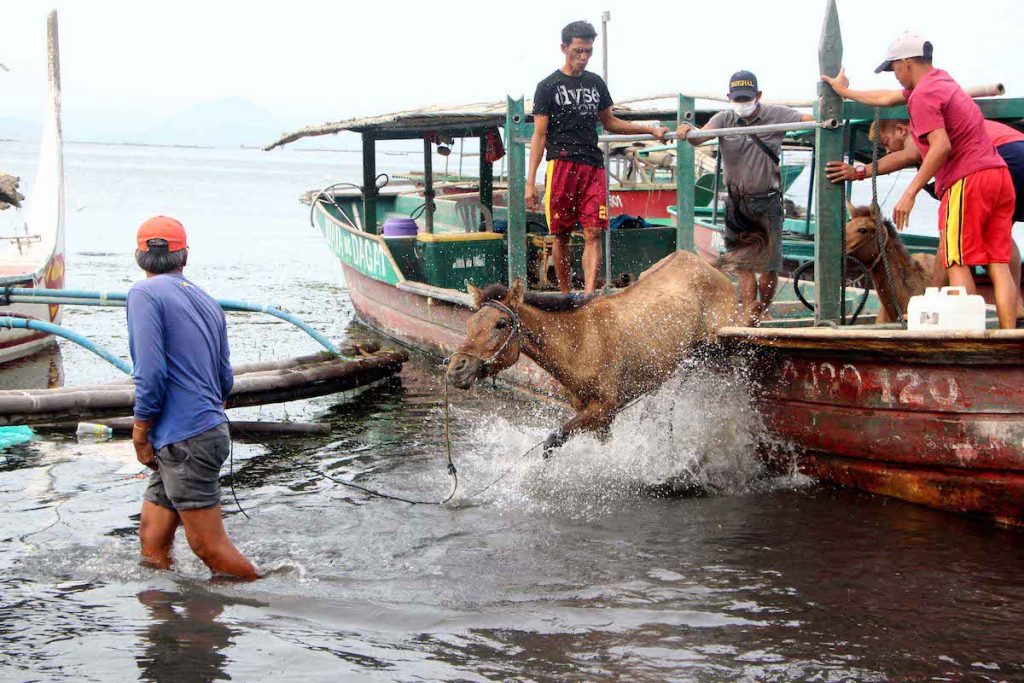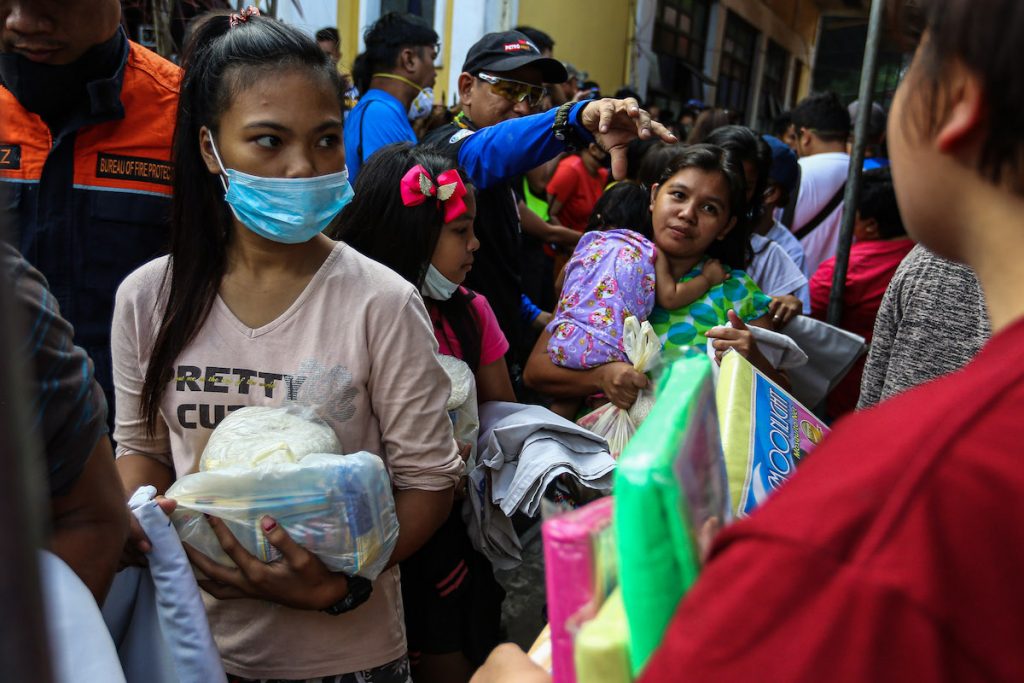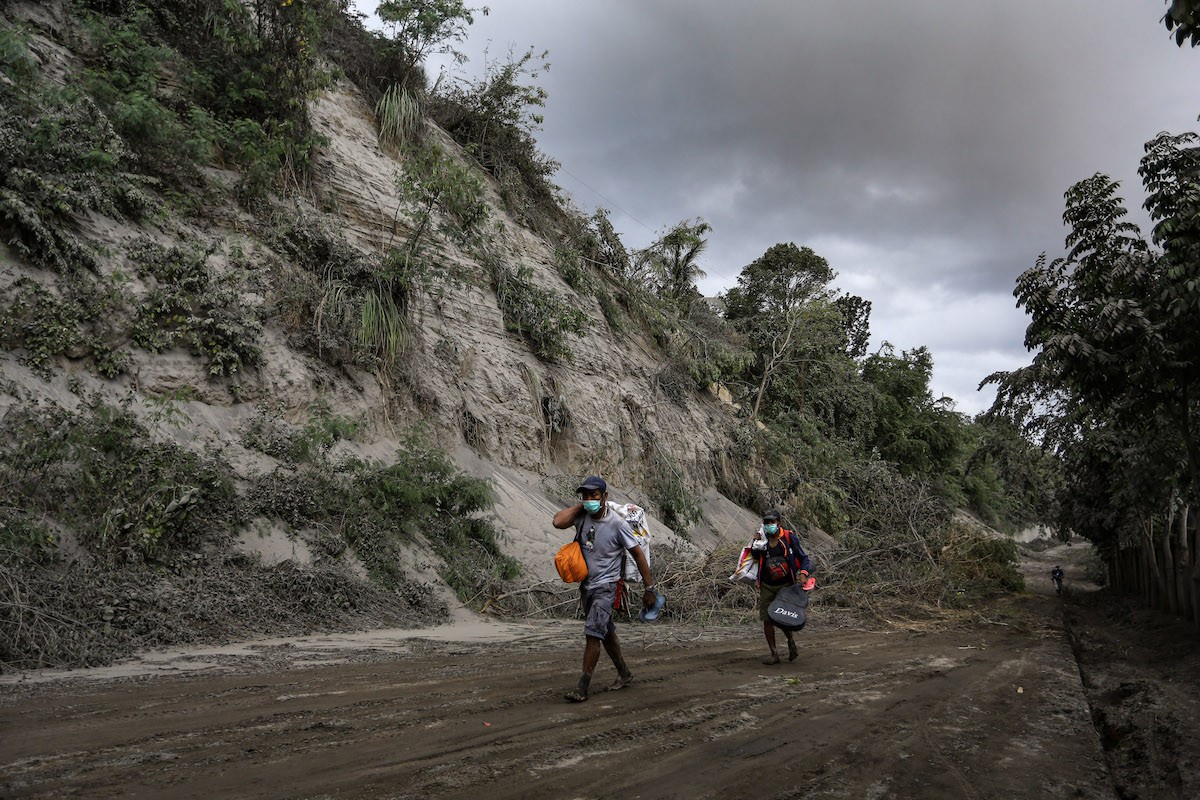There are many noticeable and significant differences in the public response to the ongoing volcanic eruption in the Philippines compared with past natural calamities hitting the country.
The proximity of Taal Volcano to the country’s capital, at only about 60 kilometers, instantly meant round-the-clock coverage by Manila media.
Taal and most parts of the province of Batangas, which has been most affected by the disaster, are a quick and easy drive for journalists, and even for foreign correspondents.
It also means that the state response to the disaster is quickly and easily reported. There is also no reason for the country’s top officials not to visit the evacuation centers.
While local government units were quick in responding to advisories from the Philippine Institute of Volcanology and Seismology, the same cannot be said about national government agencies.
The biggest casualty of Taal’s eruption so far is the narrative of “Filipino resilience,” which was the go-to “apologia” of national government officials for their corruption and ineptitude.
It helped that Taal’s mighty column of ash that winds blew northwards fell on practically the entire island of Luzon on the evening of Jan. 12.
The ash fall and the video reports regarding mandatory evacuation gave the disaster a sense of urgency.
In place of the narrative of “Filipino resilience” was the immediate explosion of Filipino solidarity — bayanihan in the popular vernacular. Generosity is good, but solidarity is better.
Vendors and farmers, activists and advocates, striking workers and motorcycle riders, peer groups and ordinary folk immediately responded with all types of help.
Many gave out free food, or free face masks. Farmers from the north, who have borne the brunt of climate change and neoliberal policies, sent truckloads of vegetables and other produce.
The ash fall pushed the people of Pampanga province, who three decades ago survived a similar disaster with Mount Pinatubo, into a powerful act of solidarity. Their local government swiftly organized a convoy of 200 vehicles to bring relief aid to Batangas.
Perhaps for the first time in recent memory, nobody talked about “resilience,” and instead focused on “immediate relief.”
The people of Metro Manila and Luzon are used to disasters. And many know Batangas province, especially the scening city of Tagaytay overlooking the volcano.

The people of Batangas also have a reputation for being hardworking and courageous. Surely, many thought and continue to think that the people of Batangas should not suffer further and needlessly on top of their displacement.
And so Filipinos took it upon themselves to send help.
And while most people would ordinarily appreciate expressions of support by way of “thoughts and prayers,” the Oratio Imperata prayers released by two bishops didn’t catch fire.
Those calls to prayer took a backseat to calls for relief. Or maybe, the prayers were directed at something else: To empower the people to express solidarity.
It’s not to say that Filipinos have less faith now. But there’s a Filipino saying: “Nasa Diyos ang awa, nasa tao ang gawa” — or roughly, God is merciful but man must act.
The declaration of high alert by authorities and the continuing efforts of experts to educate the public on volcanology and geology are truly helpful.
Their findings and insights provided people guidelines for action. Their efforts reinforced the widespread belief that a country like the Philippines should adequately fund disaster relief and science.
Of course, we cannot stop the warring political factions from their opportunist use of the disaster to take cheap political shots against each other. That’s in the DNA of traditional Filipino politicians.
The difference now is that many people no longer get swayed by narratives such as “resilience” or “acts of God” that ultimately blame the victims and seek to excuse criminal negligence.
Or to the idea of political messiahs.

In the case of Taal, people are asking the self-styled political messiah, President Rodrigo Duterte, tough and valid questions regarding his statement about eating ash and urinating into Taal’s crater, and his administration’s dwindling budgets for disasters. His usual demagoguery may not be enough to shock the public into silence.
Elsewhere, red-baiting by a palace official against activist youth groups spectacularly failed, with the many students responding to activists’ calls for donations and for volunteers for their Youth Aid campaign. They have already received and dispatched truckloads of donations.
When Interior Secretary Eduardo Ano called on the public to donate for Taal evacuees, he was met with disbelief and fury. The public asked, quite correctly: “Why ask us for donations? Where are the taxpayer funds that we wanted allotted for calamities?”
The House of Representatives also held a special out of town session in Batangas City, which the legislators said was a “symbolic” expression of their support for the people.
But the public was unimpressed.
It was clear that House Speaker Cayetano and his predecessor, Gloria Macapagal Arroyo, have presided over the reductions of the budget for disaster response.
The stark differences between the national government’s response and those of the public cannot be clearer. It appears the Filipino people have learned valuable lessons from past disasters.
They’ve shown themselves and the government what must be done, and are not in the mood to accept excuses from officials.
The changing public mindset on disasters is good as we brace for what could be a major eruption by Taal, and in future natural calamities.
We cannot change our location in the Pacific Ring of Fire and the Pacific typhoon belt, but surely we can change our mindset and compel changes in the state’s response, if we are to save lives, livelihoods, and property in Taal and beyond.
Tonyo Cruz is a Filipino blogger, newspaper columnist, and convener of the media and arts alliance Let’s Organize for Democracy and Integrity. The views and opinions expressed in this article are those of the author and do not necessarily reflect the official editorial position of LiCAS.news.







